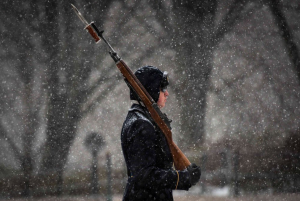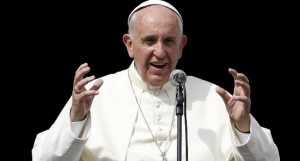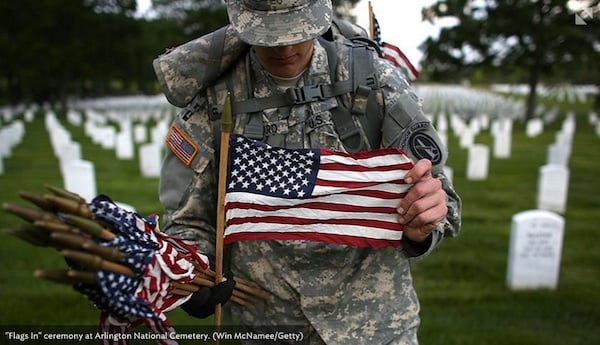
I started typing this post at 2:00 p.m., on July 3 — 150 years to the hour from Pickett’s Charge at the Battle of Gettysburg. The span of time that it takes to write, edit, and submit this post will encompass approximately the length of the charge itself — roughly half an hour. In that half-hour, hundreds of men died, thousands were maimed, and the tide of the Confederacy peaked and receded. The half-hour of our nation’s ultimate crisis passed.
On Memorial Day, a former SEAL, Leif Babin, wrote that it was the Continental Army, not the Declaration of Independence, that gave us our freedom. This is entirely accurate. And our freedom has been maintained through the courage of those men on Cemetery Ridge 150 years ago this afternoon, by the men on Omaha Beach, and — today — by the men and women in Afghanistan fighting on even as America forgets.
How can we honor such courage?
Words of thanks are inadequate — especially when so many of those we need to thank have long passed. I live in a beautiful area of Middle Tennessee — my house sits just in front of General John Schofield’s line in the Battle of Franklin, which saw a Confederate charge bloodier than Pickett’s — and my days are filled with the kind of gratitude that Yuval Levin so eloquently described in his remarks at the Bradley Foundation. I work hard to teach my kids about our nation’s — and our family’s — history (my ancestors wore blue at Valley Forge, gray at Shiloh, Vicksburg, Franklin, and Nashville, green during the Normandy campaign, and I wore the digital camoflauge of the Surge), but not even knowledge is enough.
I think we honor courage by living honorably — faithful to our families and our communities. That may mean taking our own turn on the line of battle, but most Americans – thankfully — will never have to face the hell of combat. So what else can we do? If a person dies to give you a gift, how do you treat that gift?
You treat it with reverence, with the greatest respect. Did men die so that we could be thoughtless libertines, squandering our heritage and our children’s future on our desires, our demands? Did they fight for this “new birth of freedom” so that we could suck the marrow out of the bones of the nation for our own fulfillment? While men fight and die for many reasons, the animating purpose of our founding conflicts — and the great wars we waged thereafter — was to create and maintain a culture that preserved for this and succeeding generations those unalienable rights of life, liberty, and the pursit of happiness.
It’s an open question whether our nation treats those blood-bought rights with resepect and reverence. Our own personal conduct, however, is not dictated by culture or by policy. No matter what others do, we can honor the courage of those who came before by the way we live our lives, the things we teach our children, and by rising to the occasion of our times in our communities.
Our forefathers’ sacrifice demands nothing less.









